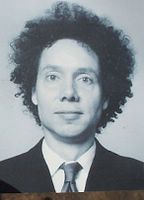
Malcolm Gladwell :'Don't think - blink'

There has been a lot written about the importance of higher order thinking (HOT); of solving problems by rationality. There are others that feel this ‘Western’ desire to solve problems rationally needs to balanced by a more ‘reflective’ style of thinking – more Zen and less zest!
Now we have a new concept ‘thin slicing’ or the power of ‘snap’ judgments. Malcolm Gladwell in his new book ‘Blink’ outlines this ‘power of thinking without thinking’.
Gladwell writes that in a ‘blink’ we can, by drawing on our stored memory of experience, make very accurate decisions. In some case we can’t say why we ‘feel’ it to be right but it is. For people, with hard earned expertise in any field, can make sophisticated judgments in a flash and be overwhelmingly right.
For example a quick look around a person’s home, library, music and personal belongings, will provide more accurate information about a candidate than a formal interview. For an expert a glance in classroom is enough to assess if the teacher is creative or whatever you are looking for. Patients 'thin slice' their doctors and vice versa and the same applies between teacher and student. Allowing more time rarely alters the first impression. Experts in any field just know and often can’t explain what they know. Firemen, wine tasters, tennis players and policemen all have to make decisions without thinking!
Out ability to ‘thin slice’ can get hijacked by unconscious prejudice. Policemen teachers and students can fall into this trap. Racism affects many of us even if we feel we are not biased and good looks, or surface features, can fool us as well – in situations like this Gladwell believes we should analyze our hidden assumptions to consider why we made the wrong decision and keep it mind for next time.
Experts in any field can take in an amazing amount of information without even being aware of it. If however teachers are asked to consider their intentions for every lesson, and record evidence about teaching acts, this 'slow planning' will destroy their intuitive skill. They will, in the process,lose valuable insights, becoming poorer teachers in the process.
Expertise and experience improves this ability and the insights gained will be more valuable than the suggestions of academic researchers with their considered ‘best practices’. Gladwell writes that you can focus so much on the processes and procedures that you can lose sight of the task. Collecting endless data or evidence can create the same problem. Such caution ad consideration can kill qualities of creativity and risk taking which always requires working with limited information. Less is more; too much information destroys creative thinking.
‘Snap ‘judgments can be made in ‘snap’ because they are frugal – and this frugality must be protected if we want to avoid being drowned in information.
Expertise in any field is a hard earned gift and must be protected from the imposed mindsets of the distant technocrats who are divorced from the messy immediacy of reality. Only experience and passion can develop the facility of making such informed judgments.
Pressing for too much detail, or planning, or the asking for evidence, can make teachers 'autistic', unable to pick up the fleeting clues that mean so much in a world based on relationships.
This ability to ‘thin slice’ and pick up insight in ‘blink’ is one of the most powerful we posses. Gladwell believes we can all hone this instinctive ability to bring out the best in us and in the process transform our relationships and organizations. School is the obvious place to protect and develop this ability. Unfortunately much of what teachers are currently asked to do run counter to developing such a vital survival skill.
Read his book.
You will never think about thinking the same way again.
5 comments:
No wonder intuitive or creative people get such a hard time in teaching.
You are right. The latest 'expert' answer to our problems, 'evidence based learning' ( whatever that means), runs counter to creativity and imagination; but then, when did your see these words written in any Ministry documents? The best evidence is what students can do with enthusiasm - another word you won't see. The current 'experts' have a bad case 'academic autism'.
I think you have made some very valid points. Many teachers seem to be required to write books about what they are doing, why they are doing it, and what happened in the process- as well as teach. As a consequence their minds are cluttered, energies sapped, they end up 'chasing their own tail' rather than responding in a truly creative way to the children they teach.
Oops!! a couple of errors in my earlier comment!
'Chasing their tails' seems to be the name of the game these days as you say. The final solution to this game is problematic!
Post a Comment